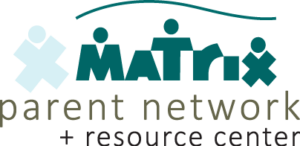
Transition to Adulthood Home > About > Six Essential Resources > Roadmap > County Specific Resources
It’s never too early for students to begin learning pre-employment skills, including job exploration, social (and other) workplace skills, and self-advocacy at work. Career counseling is very beneficial, especially for students who have no idea what they want to do.
Some ways to explore different work environments are through:
- volunteer or mentoring opportunities
- paid or unpaid internships
- apprenticeships
- actual on-the-job paid employment
These experiences not only build students’ resumes, but also build self-confidence, self-knowledge, and self-esteem.
The California Department of Rehabilitation (DOR) works in partnership with students, school districts, and other agencies to provide pre-employment and employment services to students, young adults, and adults with disabilities. DOR services help individuals to obtain competitive employment in integrated work settings.
DOR can help people with disabilities gain access to vocational assistance. They do this for people who are:
- still in high school
- age 18 – 22 years with a Transition Plan (which allows them to remain in the public education system)
- high school graduates with a diploma
- high school graduates with a diploma can either choose to work right out of high school, go on to a two-year or four-year college, and even continue on to graduate school.
Explore what DOR has to offer students who are still in school and young adults who are no longer in school:
- https://www.dor.ca.gov/Home/StudentServices
- https://www.dor.ca.gov/Home/CareerCounselingInformationandReferral
- https://www.dor.ca.gov/Home/CooperativePrograms
- https://www.dor.ca.gov/Home/SsLawsAndRegulations
- https://www.dor.ca.gov/Home/SupportedEmploymentProgram
The DOR Student Services website, may also be helpful:
https://dor.ca.gov/Home/StudentServices
Explore local WorkAbility programs as well. WAI (WorkAbility I) is a program that is funded and administered by the California Department of Education. WAI coordinates with other agencies, like DOR and the EDD (Employment Development Department), to support students with IEPs. They assist students by giving them the opportunity to complete their secondary education while developing the skills for competitive employment and successful outcomes:
https://www.cde.ca.gov/sp/se/sr/wrkabltyI.asp
WorkAbility II, WorkAbility III and Workability IV programs, while not available in all areas, may be appropriate service options as well:
https://www.dor.ca.gov/Home/CppEDUCATION
Transition Partnership Program (TPP) is a statewide vocational educational and work placement program. It can be established through an interagency agreement between LEAs (Local Education Agencies) and DOR.
The TPP provides vocational services to help students with disabilities transition from school to employment successfully. These services could include:
- DOR Student Services
- pre-employment
- job development
- short-term support service
The TPP could be available to secondary and post secondary students, depending on the area in CA. Not all school districts, transition programs, and community colleges have a TPP.
https://www.dor.ca.gov/Home/CppEDUCATION
Disability Rights California, the largest disability rights group in the nation, has information on Transition Services for Students.
https://www.disabilityrightsca.org/publications/transition-services-for-students
Services: Options for Regional Center Consumers. Support services are provided to persons receiving services from a regional center in order to meet the goals and objectives of the Individual Program Plan (IPP)
https://www.dds.ca.gov/general/eligibility/support-services/
The Paid Internship Program (PIP) may also be available to students who are Regional Center Clients. The purpose of the paid internship program is to increase the vocational skills of regional center consumers who choose to participate in a paid internship.
There are additional resources available here:
- https://www.dol.gov/odep/topics/youth/softskills/Resources.pdf (PDF)
- Disability Benefits 101 helps both youth and parents learn how to manage school, work, and benefits:
https://ca.db101.org/
Check out CA Transition Alliance’s I Want to Work I Know I Can (PDF)
Copyright @ 2023 Matrix Parent Network and Resource Center. All rights reserved.
www.matrixparents.org Matrix Parent Network & Resource Center is a 501(c)(3) non-profit organization.
